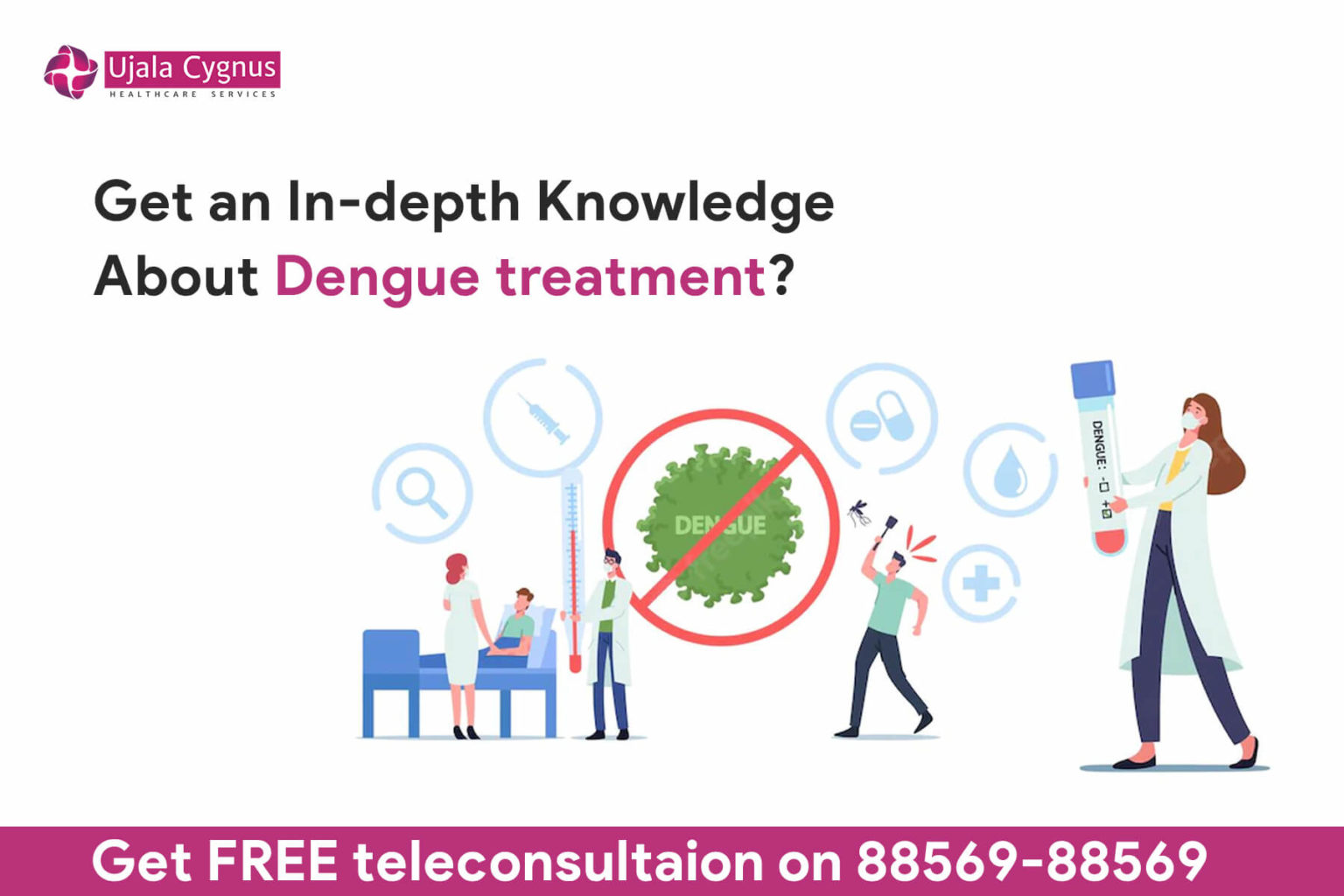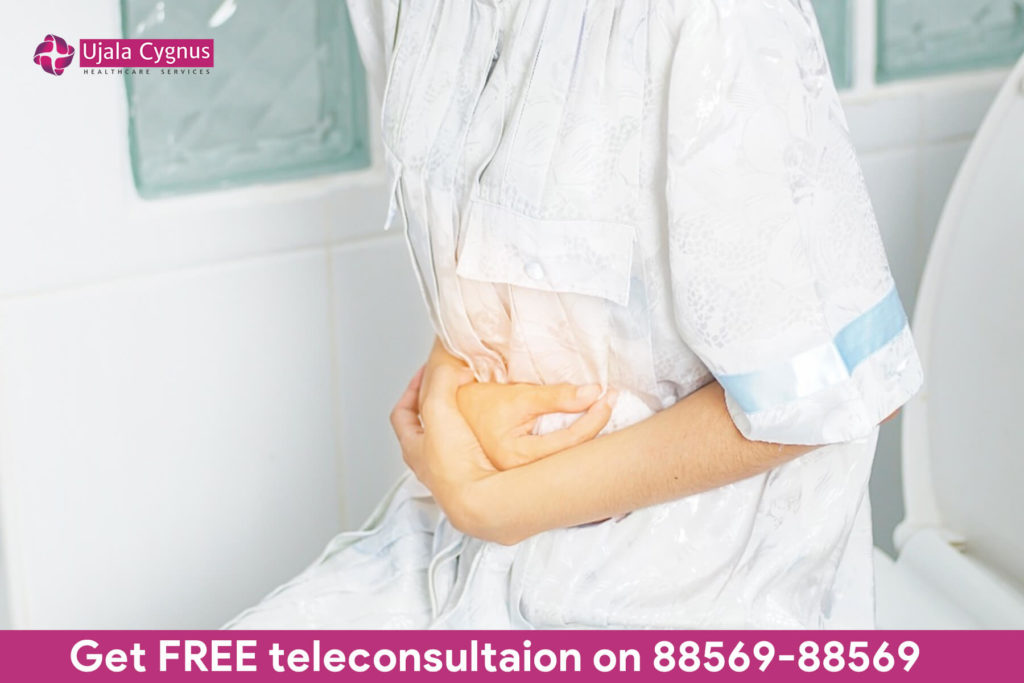Get an In-depth Knowledge About Dengue Treatment

More than half the world population across the world is under the threat of dengue fever. The incidence of dengue has risen dramatically across the globe in recent decades, and today, the dengue fever is declared endemic in many nations. There is still no precise dengue treatment as the fever is transmitted in humans due to the bites of infected female mosquitoes, primarily the Aedes aegypti mosquito. In India, maximum dengue cases are reported between July and November, the two months when dengue cases rise.
Dengue is of four types (DENV-1, DENV-2, DENV-3, and DENV-4), competent for inducing severe disease. Many issues are asymptomatic or mild and self-managed, and hence the valid numbers of dengue cases are under-reported. There are many cases which are not appropriately diagnosed as other febrile illnesses.
Get to know Know about Dengue Fever, its symptoms and its various stages through our blog.
What precautionary steps should you take for Dengue Treatment?
Those suffering from dengue should
- Rest adequately
- Stay hydrated
- Seek medical guidance

Depending on the clinical indications, the patients may be told to stay at home or maybe referred for in-hospital treatment and, in severe cases, may require emergency treatment.
In dengue treatment, whether you are of any age group, the doctor advises you to consume many fluids and take a Paracetamol tablet to reduce fever and joint pains.
You should avoid taking aspirin or ibuprofen since they can increase the risk of bleeding. Severe dengue treatment needs proper doctor care. In severe dengue cases, good medical care by doctors can frequently save lives.
Is dengue treatment different for children?
The therapy guides are the same as adult treatment and need constant monitoring. The stage from day 4 to day 7 is vital as the fever rises during this phase. It is a warning sign when the platelet count comes below one lakh, but low platelets are not the only monitored parameter. Other facts that need to be checked include
- Dehydration
- Low blood pressure
- Bleeding
What are the significant causes of Dengue treatment?
Dengue can impact people of all ages, but children are more sensitive to it as they are more viable to get bitten by mosquitoes. Secondly, if a timely cure is not started, it can cause
- Dehydration
- Shock
Both are the common reasons for severe illness and mortality in dengue patients. September and October are the two months when dengue patients rise, and of course, this year, the late rainfall has worsened the situation.
Fluid Management for Dengue Treatment in Children
Supervision of the child’s circulating fluid volume is critical. The course of dengue includes febrile, critical and healing phases and each of these cases has different fluid management challenges. In the initial febrile stage, the aim is to treat dehydration.
The bulk, i.e. (70%) of non-shocked dengue patients, are treated as outpatients with oral rehydration regimens; however, the remaining 30% of these patients and all (DSS) Dengue shock syndrome patients require intravenous (IV) fluid therapy.
| Non-Shocked Dengue Patients | Dengue shock syndrome patients (DSS) |
| Non Critical Cases | Critical or Severe Cases |
| Treated as outpatients with oral rehydration regimens | Requiring intravenous (IV) fluid therapy. |
Warning signs for Children in Dengue Treatment
Dengue deaths are entirely preventable if we take timely dengue treatments.
The warning signs in youngsters are
- Severe pain in the abdomen,
- Frequent vomiting,
- Bleeding from the mouth
- Lethargy
- Restlessness
- Poor oral intake.

Once you see the child exhibiting the above symptoms, please contact your doctor right away. The child needs to be admitted to the hospital at the earliest. The doctor will physically inspect your child and evaluate the signs to make a diagnosis. You should inform the doctor if your child has visited an area which has been impacted by dengue fever.
To confirm if your child is suffering from dengue the doctor takes the blood and sends it to the diagnostic labs to get a confirmation whether your child has dengue fever or not. If your child has a dengue virus in the blood, you need to undergo definitive tests, which include
- The Non-structural protein 1 (NS1) test,
- An Immunoglobulin G/ Immunoglobulin M test
- Polymerase chain reaction (RT-PCR) test.
Conclusion
Remember early and appropriate care can save your life in case you are suffering from dengue. You should timely determine dengue signs and a remedy plan after consulting the doctor and significantly improve your child’s faster recovery.
Frequently Asked Questions( FAQs)
How do you treat a child with dengue?
There is no specific treatment for dengue for most viral infections, only simple validating care with fluids. Antibiotics like paracetamol are used only to bring down the fever due to viral infection. Very high temperatures can be dangerous and generate fits in young children, known as febrile convulsions.
Which fruit is good for dengue?
Papaya is the best fruit for people suffering from dengue. Crush the papaya leaves and squeeze them to drag the juice. Its extract boosts platelet counts to a great extent. Moreover, you can also consume kiwi fruit which is one of the best fruit to enhance your platelet number.
Ujala Cygnus Healthcare Group has 16 hospitals. Kanpur, Rewari, Kashipur, Varanasi, Sonepat, Panipat, Kurukshetra, Nangloi in Delhi, Rama Vihar in Delhi, Kaithal, Bahadurgarh, Karnal, Moradabad, Haldwani, and Agra.
You can book an appointment at your nearest Ujala Cygnus Hospital for any health issue treatment. For any query, you can give a missed call on 88569-88569 and get a free consultation over the phone.
